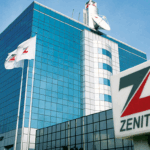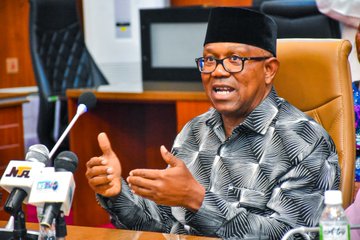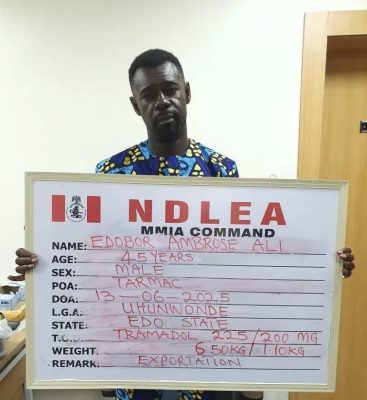
Truckers Stage Protest Over Rampant Extortion on Port Access Roads
Maritime truck owners and drivers have taken to the streets in protest over widespread extortion along Apapa and Tin-Can Island port access roads , with many claiming they are forced to pay between N250,000 and N400,000 per truck just to gain access.
The demonstration, which began at the Lillypond Truck Park in Ijora and spread to both ports, highlights how illegal tolls and racketeering are crippling businesses and slowing cargo movement.
“This isn’t just about money—it’s about survival,” said one protesting driver. “We’re being bled dry before we even reach the port.”
Cartels Exploit System Through Black Market Call-Up Tickets
Truckers revealed that call-up tickets—meant to regulate entry into the ports—are being sold illegally by cartels at exorbitant prices.
What should be a straightforward process has turned into a costly ordeal:
- Official call-up fees were initially set at N10,250
- But black market resellers now sell these slots for N120,000 to N130,000
- Some trucks face daily bribes ranging from N5,000 to N20,000 at multiple checkpoints
These practices not only drain operators financially but also cause long delays and traffic gridlock around the ports.
Demand for ETAG and Transparent Systems Grows
In response, protesters called for the full implementation of the Electronic Tag (ETAG) system , which would help eliminate corruption in call-up allocations.
They also urged authorities to introduce a truck scheduling system to improve efficiency and prevent unauthorized entries.
“ETAG will stop the manipulation of call-ups and fake identities used to gain port access,” said Lukeman Shittu, Chairman of the Lagos State Trucks and Cargo Operators Committee (LASTCOC).
He added that calls to abandon the electronic system come from those who benefited under the old, chaotic order.
ETAG Has Improved Order—but Loopholes Remain
Zangalo, a veteran in the logistics industry with over 20 years of experience, praised the impact of the ETO (Electronic Truck Operations) system.
“Before this system, trucks clogged Lagos roads indiscriminately. Now, there’s order.”
However, he acknowledged ongoing issues:
- When port terminals slow down , trucks pile up
- The Terminal Transit Portal (TTP) doesn’t release more trucks when bottlenecks occur
- This creates backlogs and increased pressure on truckers
Despite these challenges, Zangalo emphasized that returning to the old system would undo years of progress.
Extortion Checkpoints Still Plague Truckers
Mohammed Sani Bala, Secretary General of the Association of Maritime Truck Owners (AMATO) , voiced strong support for the digital call-up system.
“It has helped clear congestion and bring transparency,” he said.
But he also raised concerns about illegal checkpoints manned by security operatives , where truckers still face harassment and demands for cash.
“We want the government to reduce the number of checkpoints. These are hurting our operations and eating into our profits.”
He also proposed a truck scheduling system , ensuring only authorized vehicles enter the ports to curb abuse and further ease traffic.
Digital System Brings Progress, But Corruption Lingers
Afeez Alabi, Public Relations Officer of the Maritime Truck Drivers Association (MTDA) , warned against attempts to roll back the electronic call-up system.
“Any return to the old chaos will cripple operations and undo what we’ve built,” he said.
Alabi credited the system with bringing transparency and order to truck movement, significantly reducing congestion and exposing corrupt practices.
However, he admitted that corruption remains a major issue , as call-up slots meant for official use are now traded in a thriving black market.
“We introduced the system at N10,250. Now it’s selling for over N120,000 on the black market. That’s a sign of deep-rooted corruption we must tackle head-on.”
Call to Action: Share Your Thoughts!
What do you think about the truckers’ demands? Should the government intervene to stop the rampant extortion on Apapa and Tin-Can port roads?
💬 Leave a comment below and join the conversation on how Nigeria can fix its port logistics crisis.
📢 Don’t forget to share this story to raise awareness about the challenges facing Nigeria’s maritime transport sector.














Be the first to leave a comment